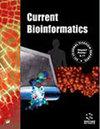Optimized Hybrid Deep Learning for Real-Time Pandemic Data Forecasting: Long and Short-Term Perspectives
IF 2.9
3区 生物学
Q3 BIOCHEMICAL RESEARCH METHODS
引用次数: 0
Abstract
Background:: With new variants of COVID-19 causing challenges, we need to focus on integrating multiple deep-learning frameworks to develop intelligent healthcare systems for early detection and diagnosis. Objective:: This article suggests three hybrid deep learning models, namely CNN-LSTM, CNN-Bi- LSTM, and CNN-GRU, to address the pressing need for an intelligent healthcare system. These models are designed to capture spatial and temporal patterns in COVID-19 data, thereby improving the accuracy and timeliness of predictions. An output forecasting framework integrates these models, and an optimization algorithm automatically selects the hyperparameters for the 13 baselines and the three proposed hybrid models. Methods:: Real-time time series data from the five most affected countries were used to test the effectiveness of the proposed models. Baseline models were compared, and optimization algorithms were employed to improve forecasting capabilities. Results:: CNN-GRU and CNN-LSTM are the top short- and long-term forecasting models. CNNGRU had the best performance with the lowest SMAPE and MAPE values for long-term forecasting in India at 3.07% and 3.17%, respectively, and impressive results for short-term forecasting with SMAPE and MAPE values of 1.46% and 1.47%. Conclusion:: Hybrid deep learning models, like CNN-GRU, can aid in early COVID-19 assessment and diagnosis. They detect patterns in data for effective governmental strategies and forecasting. This helps manage and mitigate the pandemic faster and more accurately.用于实时流行病数据预测的优化混合深度学习:长期和短期视角
背景::随着 COVID-19 的新变种带来挑战,我们需要专注于整合多种深度学习框架,以开发用于早期检测和诊断的智能医疗系统。目标本文提出了三种混合深度学习模型,即 CNN-LSTM、CNN-Bi-LSTM 和 CNN-GRU,以满足对智能医疗系统的迫切需求。这些模型旨在捕捉 COVID-19 数据中的空间和时间模式,从而提高预测的准确性和及时性。一个输出预测框架集成了这些模型,一个优化算法自动为 13 个基线模型和三个拟议的混合模型选择超参数。方法使用五个受影响最严重国家的实时时间序列数据来测试所提模型的有效性。对基线模型进行比较,并采用优化算法提高预测能力。结果CNN-GRU 和 CNN-LSTM 是最优秀的短期和长期预测模型。CNNGRU 性能最佳,在印度的长期预测中 SMAPE 和 MAPE 值最低,分别为 3.07% 和 3.17%,在短期预测中 SMAPE 和 MAPE 值分别为 1.46% 和 1.47%,结果令人印象深刻。结论混合深度学习模型(如 CNN-GRU)可以帮助进行早期 COVID-19 评估和诊断。它们能检测数据中的模式,从而制定有效的政府战略并进行预测。这有助于更快、更准确地管理和缓解大流行病。
本文章由计算机程序翻译,如有差异,请以英文原文为准。
求助全文
约1分钟内获得全文
求助全文
来源期刊

Current Bioinformatics
生物-生化研究方法
CiteScore
6.60
自引率
2.50%
发文量
77
审稿时长
>12 weeks
期刊介绍:
Current Bioinformatics aims to publish all the latest and outstanding developments in bioinformatics. Each issue contains a series of timely, in-depth/mini-reviews, research papers and guest edited thematic issues written by leaders in the field, covering a wide range of the integration of biology with computer and information science.
The journal focuses on advances in computational molecular/structural biology, encompassing areas such as computing in biomedicine and genomics, computational proteomics and systems biology, and metabolic pathway engineering. Developments in these fields have direct implications on key issues related to health care, medicine, genetic disorders, development of agricultural products, renewable energy, environmental protection, etc.
 求助内容:
求助内容: 应助结果提醒方式:
应助结果提醒方式:


